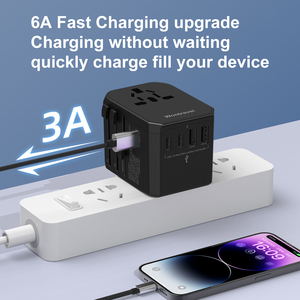Understanding Different Plug Types
The world of electrical equipment is incredibly diverse, and one vital aspect that often causes confusion is the different plug types. These plugs vary significantly by design, function, and usability across various regions and applications. Recognizing these differences is key to ensuring safety and compatibility in your electrical setups.
Types of Different Plug Types
Different plug types can be categorized based on their shape, size, and the configuration of their pins. Here are some common types you might encounter:
- Type A: An ungrounded plug primarily used in North America and Japan, featuring two flat parallel pins.
- Type B: A grounded plug similar to Type A but equipped with a grounding pin for added safety, prevalent in the United States.
- Type C: Often referred to as the Europlug, it is widely used across Europe and features two round pins.
- Type D: A plug with three round pins in a triangular formation, the Type D is commonly used in India and some African countries.
- Type G: Characterized by three rectangular pins, this plug type is utilized in the UK and has a built-in fuse for extra protection.
- Type I: Common in Australia and New Zealand, this plug features two flat pins in a V-shape and a grounding pin.
Applications of Different Plug Types
Understanding different plug types is crucial for a variety of applications:
- Home Appliances: Most electrical devices come with plug types that correspond to the voltage and sockets of the region they are intended for.
- Travel Equipment: Travelers often need plug adapters for their electronic devices, making it essential to know the host country's plug types.
- Industrial Use: Different plug types cater to heavy machinery and equipment requiring specified voltage and current ratings.
- Consumer Electronics: Devices like laptops, chargers, and game consoles must have compatible plugs for safe operation.
Features and Advantages of Different Plug Types
The diverse nature of different plug types offers several advantages and features that cater to different needs:
- Safety: Many modern plug types include safety features like fuses and grounding pins, reducing the risk of electrical faults.
- Compatibility: With various plug types, users can find a compatible solution for almost every device and socket configuration.
- Ease of Use: Plugs are designed for straightforward insertion and removal, facilitating user accessibility across different environments.
- Durability: High-quality materials used in different plug types ensure longevity and reliability, providing peace of mind in constant use.
- Versatility: Many plug designs can accommodate multiple voltages and frequencies, ensuring they meet the needs of varying devices in diverse settings.




























